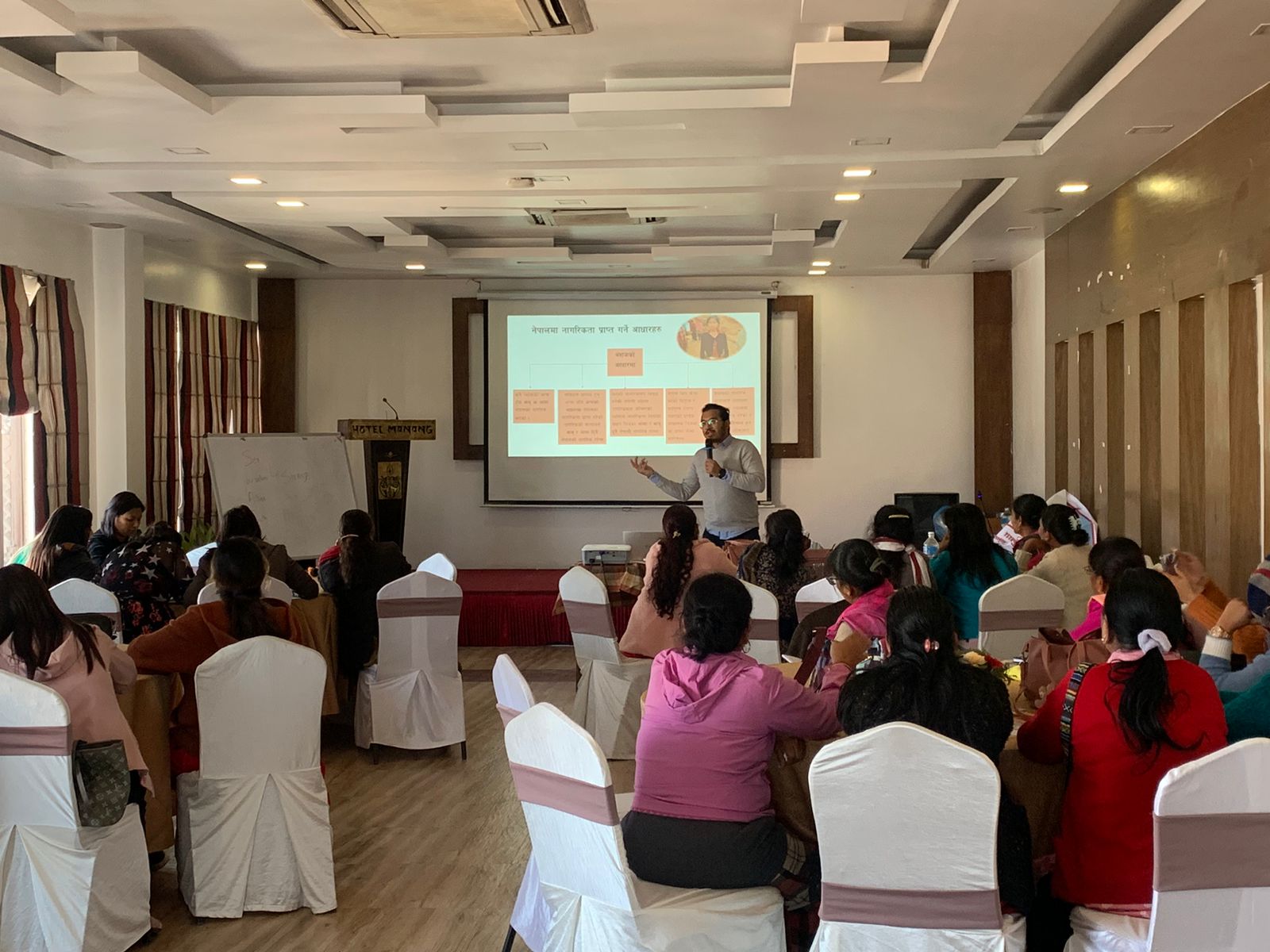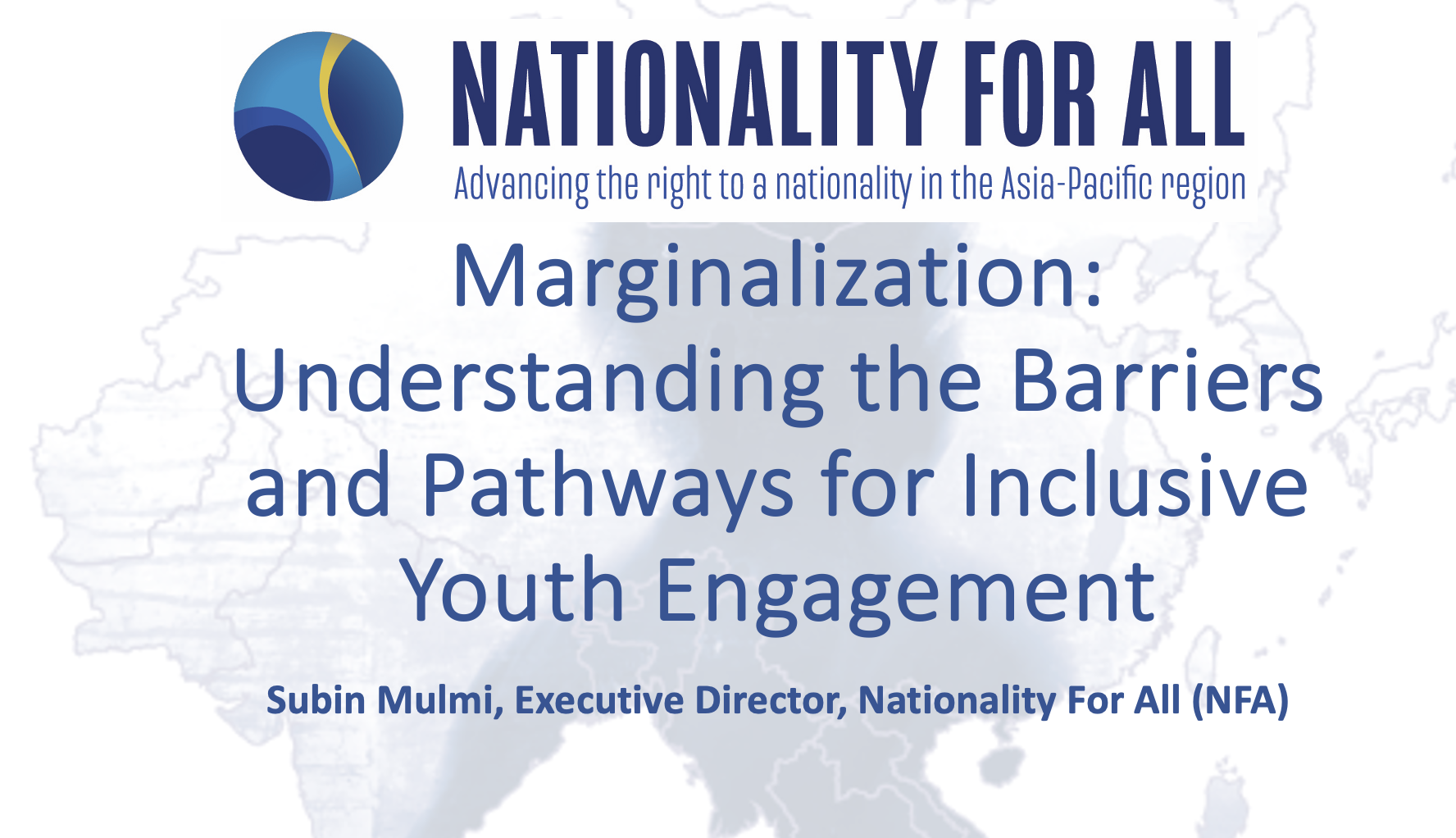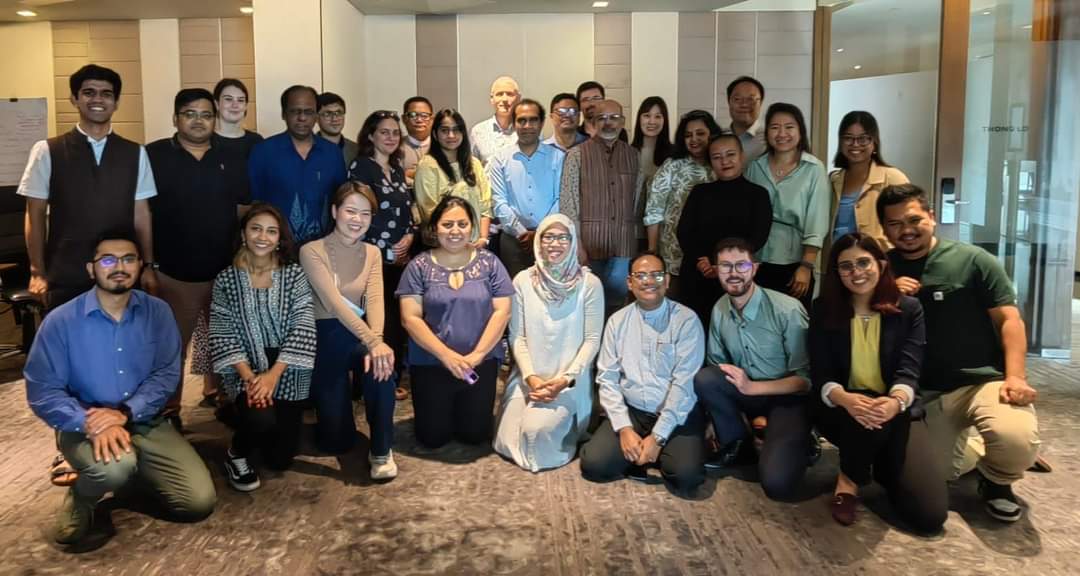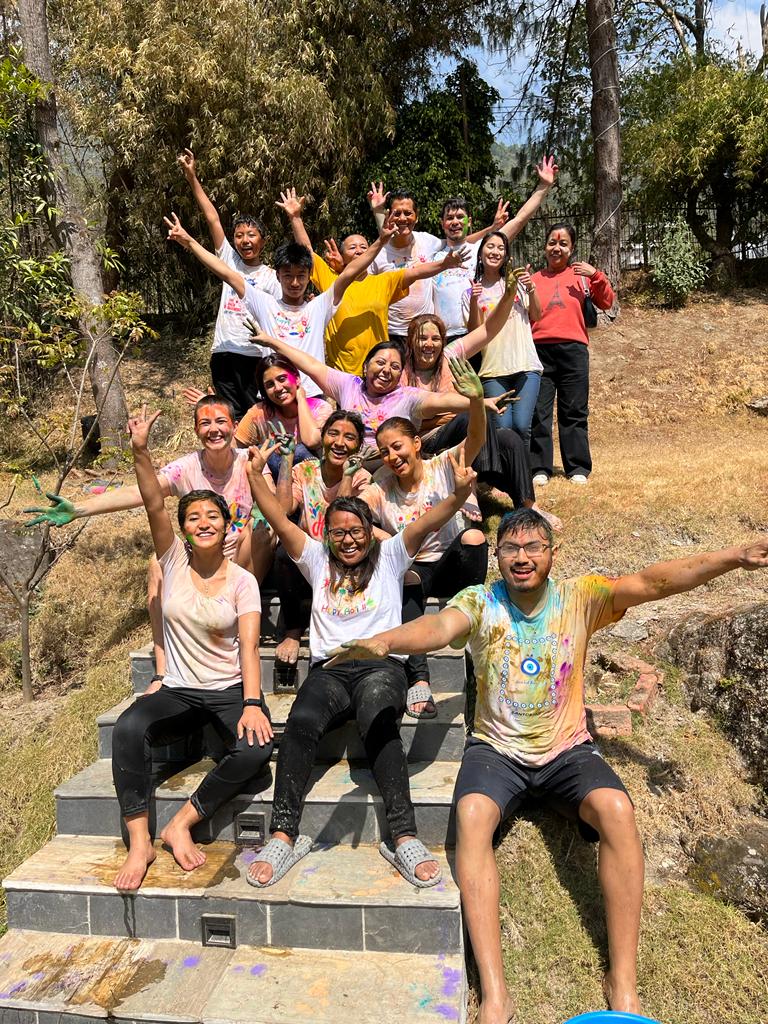Date: 20 May 2025
Event: UNDP Asia-Pacific Youth Empowerment Portfolio (YEP-AP) Learning and Knowledge Exchange Session
Speaker: Subin Mulmi, Executive Director, Nationality For All (NFA)
Understanding Statelessness and Inclusive Youth Engagement
Nationality for All’s Executive Director, Subin Mulmi, was invited to speak at the UNDP Youth Empowerment Portfolio’s Learning Session, a regional initiative aimed at deepening understanding of intersectional marginalization and advancing the Leave No One Behind (LNOB) agenda.
In his presentation, “Statelessness and Marginalization: Understanding the Barriers and Pathways for Inclusive Youth Engagement,” Subin discussed how statelessness intersects with other forms of exclusion, including gender, ethnicity, disability, and migration status, and how these dynamics shape the lives and leadership opportunities of young people across Asia and the Pacific.
Key Highlights
- The Scope of Statelessness in Asia-Pacific
Over 2.5 million people in the region are reported as stateless, representing nearly 57% of the global stateless population. However, underreporting remains a major challenge, with many communities still invisible within national statistics. Stateless populations include the Rohingya in Myanmar, Hill Tribe communities in Thailand, and ethnic Vietnamese in Cambodia, among others. - Intersectionality and Multiple Layers of Exclusion
Subin explored how nationality laws and administrative practices often reinforce gendered and ethnic discrimination, citing examples from Nepal, Malaysia, Brunei, and Kiribati where women still face legal barriers to conferring citizenship equally to their children. He also highlighted the compounded exclusion faced by youth from marginalized communities, particularly in accessing education, healthcare, employment, and political participation. - Youth as Agents of Change
Emphasizing the potential of young people to drive change, the session called for greater inclusion of stateless and marginalized youth in program design, leadership, and advocacy. Subin shared pathways for youth-focused programs to become more inclusive, including community-based mapping of at-risk youth, partnerships with stateless-led organizations, and capacity-building initiatives that center lived experience leadership.
Towards Inclusive Youth Empowerment
The interactive session included discussions with UNDP’s youth team on how to strengthen cross-sectoral collaboration to ensure that youth programming in the region actively includes stateless and marginalized young people. Participants reflected on the need for rights-based, inclusive approaches that view legal identity as foundational to empowerment and participation.
Subin concluded by reaffirming NFA’s commitment to advancing youth leadership within statelessness advocacy and encouraged greater integration of statelessness issues into regional youth initiatives.




